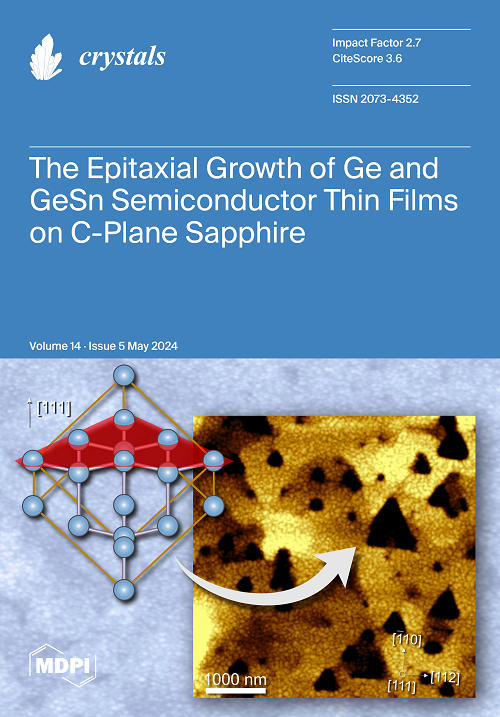多目标优化 CeO2/Al6061 合金的成型质量,将其作为通过选择性激光熔化技术制造的铝-空气电池阳极
IF 2.4
4区 材料科学
Q2 CRYSTALLOGRAPHY
引用次数: 0
摘要
为了提高铝-空气电池的放电性能,采用选择性激光熔融(SLM)技术制备了 CeO2/Al6061 复合材料作为负极。采用响应面法(RSM)对测试结果进行线性拟合。建立了复合阳极成型质量的预测模型,并根据方差分析和显著性检验探讨了模型的可靠性和工艺参数之间的相互作用。在此基础上,以腐蚀电位、自腐蚀速率和放电电压为优化目标,通过遗传算法求解了 SLM 成型 CeO2/Al6061 阳极工艺参数的最优解集,并进行了实验验证。结果表明,激光功率为 265~285 W、扫描速度为 985~1025 mm/s、扫描间距为 0.116~0.140 mm 是复合材料成型质量和各种性能的最佳工艺范围。选取优化后的工艺参数进行可靠性测试,误差均在 3.0% 以内,验证了模型的准确性和可靠性。本文章由计算机程序翻译,如有差异,请以英文原文为准。
Multi-Objective Optimization for the Forming Quality of a CeO2/Al6061 Alloy as an Aluminum–Air Battery Anode Manufactured via Selective Laser Melting
To improve the discharge performance of aluminum–air batteries, CeO2/Al6061 composites were prepared as an anode using selective laser melting (SLM). Response surface methodology (RSM) was employed, and the test results were linearly fitted. A prediction model for the forming quality of the composite anode was established, and the reliability of the model and the interaction between process parameters were explored based on variance analysis and significance testing. On this basis, with corrosion potential, self-corrosion rate, and discharge voltage as optimization objectives, the optimal solution set of the SLM forming CeO2/Al6061 anode process parameter was solved through a genetic algorithm, and experimental verification was conducted. The results indicate that the optimal process range for the forming quality and various properties of composite materials is laser power of 265~285 W, scanning speed of 985~1025 mm/s, and scanning spacing of 0.116~0.140 mm. The optimized process parameters were selected for reliability testing, and the errors were all within 3.0%, verifying the accuracy and reliability of the model.
求助全文
通过发布文献求助,成功后即可免费获取论文全文。
去求助
来源期刊

Crystals
CRYSTALLOGRAPHYMATERIALS SCIENCE, MULTIDIS-MATERIALS SCIENCE, MULTIDISCIPLINARY
CiteScore
4.20
自引率
11.10%
发文量
1527
审稿时长
16.12 days
期刊介绍:
Crystals (ISSN 2073-4352) is an open access journal that covers all aspects of crystalline material research. Crystals can act as a reference, and as a publication resource, to the community. It publishes reviews, regular research articles, and short communications. Our aim is to encourage scientists to publish their experimental and theoretical results in as much detail as possible. Therefore, there is no restriction on article length. Full experimental details must be provided to enable the results to be reproduced. Crystals provides a forum for the advancement of our understanding of the nucleation, growth, processing, and characterization of crystalline materials. Their mechanical, chemical, electronic, magnetic, and optical properties, and their diverse applications, are all considered to be of importance.
 求助内容:
求助内容: 应助结果提醒方式:
应助结果提醒方式:


